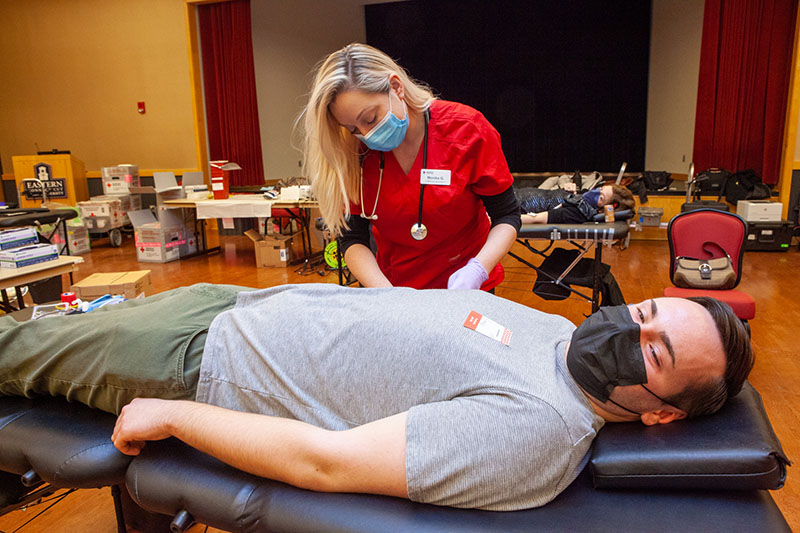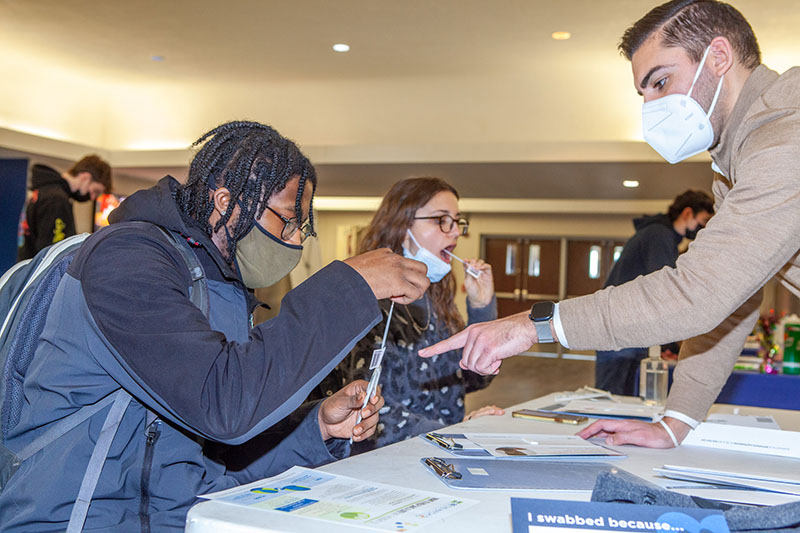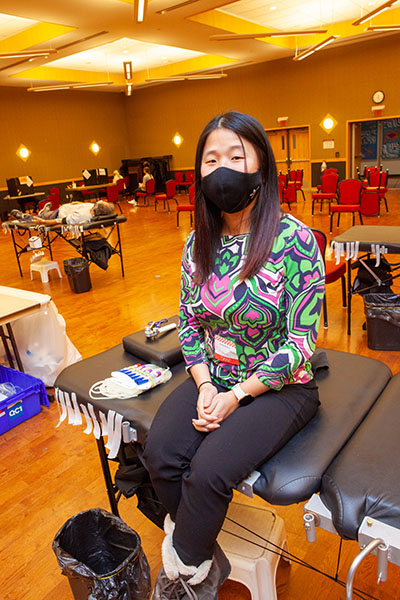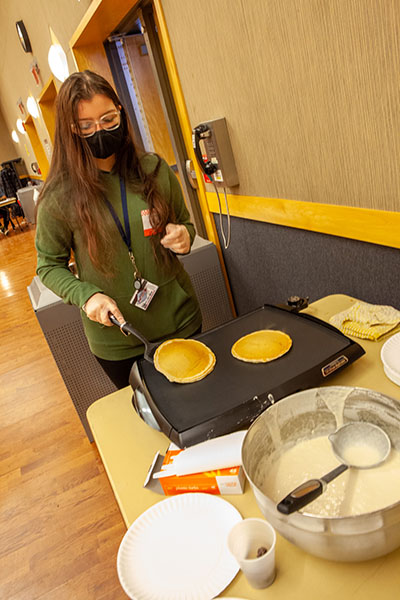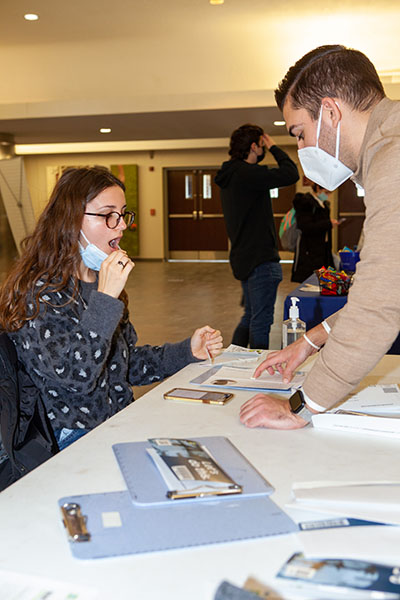- Apply
- Visit
- Request Info
- Give
Eastern community saves lives via blood and bone marrow drives
Written by Bobbi Brown
Published on February 07, 2022
The Eastern campus community continued its efforts to save lives by participating in the University's 10th "Be the Match" bone marrow registry on Feb. 2 and ongoing Red Cross blood drives on Feb. 1 and 2. Be The Match seeks to find eligible donors for the thousands of people diagnosed with rare blood diseases. The bone marrow registry event was sponsored by the men’s soccer team and held in the Sports Center Lobby and the blood blood drives, co-sponsored by the Campus Ministry and Center for Community Engagement, were held in the Betty R. Tipton Room.
Coordinated by administrative assistant Nancy Brennan, the blood drives occur multiple times each semester. Over the two-day drive, 91 pints of blood were collected and 27 people donated blood for the first time. “It is always our hope that if we can get our students to donate once, they will see how easy it is and they will be back,” said Brennan. “We remind them that with their one pint of blood, they can help to save up to three lives.”
Some students are nervous when it comes to donating blood, but Brennan shared how she explains and encourages them to participate. “During recruitment many of the students say they are afraid of needles. I understand it’s the unknown that they are afraid of, but I try to explain that if they hydrate well and eat healthy a few days before the donation, everything will go smoothly.”
During the four-hour Be The Match event, 154 students entered into the registry. Over the years, thousands of students have registered and saved 25 lives via bone marrow/stem cell matches, according to head soccer coach Greg DeVito. Due to Eastern's consistently high participation in the registry, as well as its unusually high rate of life-saving matches, the University was previously honored with the National Marrow Donor Program/Be The Match Awareness Award.
Jessica Pacheco, community engagement representative for Be The Match, explained details of the program. “People who need these transplants will search their families first to find a match. Unfortunately, there’s only a match in a family 30 percent of the time. In the other 70 percent of cases they’re searching the registries and are more likely to match a stranger.”
The process of getting added to the Be The Match registry is simple. Participants fill out a form with their general information and provide an oral cheek swab. They are then added to the registry and contacted if they are a possible match. After being identified as a potential match, participants commit 20–30 hours to attend an information session, scheduled appointments and complete the donation procedure.
The program seeks donors between the ages of 18 and 40 because they are the ones doctors choose the most. “College campuses are honestly the best age range. Not only are we looking for that age, but we also need more diversity on our registry," said Pacheco. "Unfortunately, there are huge gaps between different races and their chances of finding a match. We go to campuses and try to speak to as many organizations, professors and athletes as possible to let them know how important it is and explain that they are the people we need to match these patients.”
Student volunteer Hannah Giesing ’22, a health sciences major and member of the Pre-Health Society, shared the importance of the event and a personal story of why the program means so much to her. “I’ve been on the Be The Match registry since high school. I had a family member who was diagnosed with cancer, so I thought joining the registry could be a good way to match with anybody. It’s a great and simple way to save someone’s life. I think this event is a great way to involve the campus community.”
In 2012, Eastern soccer player Jon DeCasanova ’17 was diagnosed with aplastic anemia and lymphatic cancer and was given little chance of survival, but with extensive treatments and a cord stem transplant, he beat the odds. “This program means the world to me; it helped me during a difficult stage in my life, and to see the Eastern soccer team continue on with the tradition of hosting a Be The Match event to save other patients is admirable,” said DeCasanova, who remains heavily involved with Be The Match and is currently an account manager for the Connecticut Blood Center, which provides blood to hospitals within the state.
Year after year, members of the men's soccer team plan and staff the vast majority of the event. They market it across campus and on social media, and even promote it between classes. Players Logan Brennan, Alex Voigt and Ryan Siriois took the lead in planning this year's event.
“I believe doing this every year helps to establish a sense of community because who knows what can happen in the future if any of us or other students were to be diagnosed with cancer or a blood disorder,” said soccer player and criminology major Jared Caroline ’23. “We have something here that can help them, so I think doing this is important.”
For more information, visit https://bethematch.org/ .



